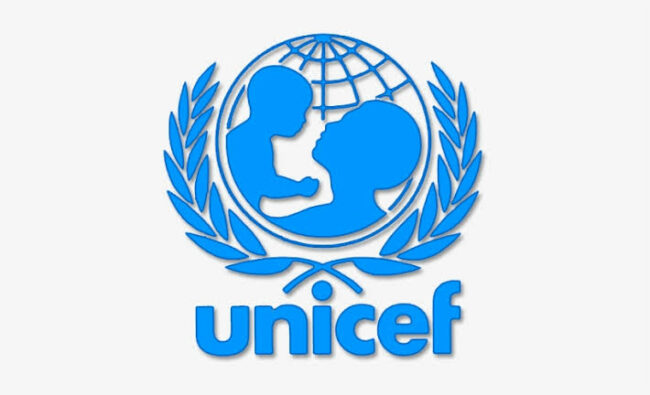The United Nations Children’s Fund, (UNICEF) has lauded traditional rulers in the nineteen northern states and the FCT for playing a significant part in the fight to eradicate the poliovirus.
UNICEF through its Country Representative in Nigeria, Cristian Munduate disclosed this during the quarterly review meeting of the northern traditional leaders’ committee on PHC delivery in Bauchi, on Wednesday.
Represented by Chief of Health, UNICEF, Sokoto Field Office, Shamina Sharmin, the UNICEF Country Representative said that, “I applaud our Royal Fathers for being a significant part of writing the unique story of Nigeria in the fight to eradicate the wild poliovirus and now, in the critical war against outbreaks.
“The vital roles the traditional leaders are playing in the polio response, routine immunization, and primary health care cannot be underestimated.”
“This is especially when it comes to raising awareness and encouraging the use of healthcare services which is especially important for vulnerable populations like women and children.
“Combating polio requires a collaborative effort involving government agencies, international organizations, local communities, and other stakeholders.”
She noted that UNICEF could not make a difference alone calling for more collaborations with all stakeholders to “overcome the challenges, stop the nomadic movement, low routine immunization coverage, and ultimately achieve zero doses and a polio-free Nigeria.”
The UNICEF Country Representative further called on the traditional leaders to continue to do more to strengthen routine immunization and kick polio completely out of Nigeria.
Munduate added, “UNICEF is committed and dedicated to implementing approaches in close coordination with other stakeholders like the Ministry of Health and National Primary Health Care Development Agencies to effectively affect vaccination-related behaviour change in individuals and communities.
“The people of Nigeria, together with UNICEF and other partners and under the aegis of our traditional and religious leaders, have made significant progress in the fight against polio in Nigeria.
“We are now at the final stretch in Nigeria and globally. As of the latest update, there have been 100 reported cases of outbreak polio virus in Nigeria in 2024, a 32 per cent decrease compared to the same period last year. If we map transmission, we find that the fight against the virus faces unique challenges due to nomadic movements, insecurity, and low routine immunisation coverage.
“Nomadic populations, characterized by frequent movement and limited access to healthcare services, pose a challenge to polio eradication efforts. Strategies to reach and vaccinate these populations are essential for interrupting transmission.”
Another worry is the issue of insecurity, particularly in conflict-affected regions, which disrupts vaccination campaigns and compromises the ability to reach vulnerable populations stressing that, “Addressing security challenges is crucial for ensuring the delivery of vaccination services, low routine immunization coverage in certain areas contributes to the persistence of polio.
“Strengthening routine immunisation programmes is vital for building population immunity and reducing the risk of poliovirus transmission. Combatting polio requires a collaborative effort involving government agencies, international organizations, local communities, and other stakeholders.
“By working together, we can overcome the challenges posed by nomadic movements, insecurity, and low routine immunization coverage, and ultimately achieve a zero dose and polio-free Nigeria. The threat of polio persists as long as it exists anywhere in the world, underscoring the importance of global collaboration.
“We commend the important role that our Royal leaders have been playing especially during polio campaigns which include leading by example through
organising palace vaccinations and playing a key role in resolving noncompliance. We call upon Your Royal Highness to continue to do more of this great work to strengthen routine immunisation and kick polio out of Nigeria for good.
“UNICEF is dedicated to implementing innovative approaches in close coordination with other stakeholders, to effectively affect vaccination-related behaviour changes in individuals and communities and remains committed to fostering substantive discourse to map out the future of primary healthcare delivery in Nigeria.”
ALSO READ FROM NIGERIAN TRIBUNE
UNICEF calls for urgent action as child poverty, malnutrition rise in Nigeria
